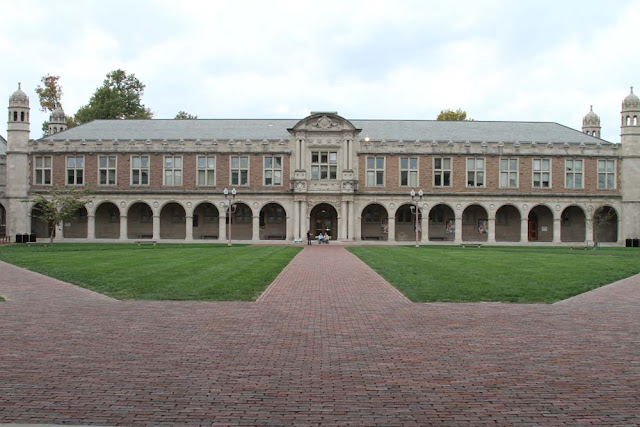
Washington University in St. Louis, Photo Courtesy: Fishville
Mainland applicants have to take the test abroad. The U.S. College Board wants to change that
By Daniel Golden, Bloomberg Businessweek, February 3, 2010.
As a high school student in Beijing, Xi Zhao cleared a hurdle applying to U.S. colleges that Americans don't face. The SAT college-entrance exam isn't offered in mainland China, so Zhao flew to Hong Kong and South Korea to take it twice. She earned the maximum 800 in math and 2080 out of 2400 overall—a score that helped her get into the University of Southern California in Los Angeles. Not being able to take the SAT on the mainland "is a hassle," says the 20-year-old, now a junior with a 3.8 grade point average. "It's not fair that other students can just take the test at their high schools and we have to travel for hours."
The number of Chinese undergraduates in the U.S. has quadrupled in four years. Now, the nonprofit College Board, which owns the SAT, PSAT, and Advanced Placement programs, is seeking the education ministry's permission to start offering the SAT on the mainland. "We've had serious discussions with Chinese officials," says Board President Gaston Caperton. "They recognize it's a big burden on parents."
The SAT's absence on the mainland is a relic of an era when China was less open to the West, Caperton says. As a former British colony, Hong Kong has long let students take the exam. China permits other U.S. tests such as Advanced Placement exams, which let high-schoolers earn college credits.
Chinese officials "have a very mixed feeling" about the SAT policy, says Tom Melcher, chairman of Zinch China, an online social network that matches Chinese students with U.S. colleges and scholarships. Officials "don't want the SAT blasted on all the walls of all the high schools," Melcher said. "It would feel politically invasive."
In the last academic year, 39,921 Chinese undergrads studied at U.S. colleges, passing South Korea as the No. 1 source of international undergraduates, according to the Institute of International Education, a nonprofit group in New York. "All of us in higher education are hopeful that the day will come when the SAT will be available in mainland China," says Kelly Walter, executive director of admissions at Boston University. The Education Ministry in Beijing and the embassy in Washington, D.C., did not respond to messages.
U.S. college recruiters are mining China's best schools for well-qualified, full-paying applicants. Increasing affluence and China's one-child policy mean middle-class Chinese can afford tuitions that far exceed the price of school at home. "There's this real sense of a huge, untapped market," says Timothy Brunold, dean of admissions at USC, which admitted 162 students from China in 2010, up from six in 2005.
The College Board, which had revenue of $623 million in fiscal 2009, charges $47 to take the SAT in the U.S. and $75 internationally. The Board in 2006 introduced an Advanced Placement course in Chinese language and culture, and has brought more than 450 instructors from China to teach it in the U.S.
Next year, Chinese schools will offer the PSAT, which identifies academic strengths and weaknesses in younger students. Says Xiang Wang, who in 2009 became the College Board's first vice-president of international relations for Asia, Chinese officials are "very tantalized but very cautious" about introducing international educational programs. "This is not an easy decision."
The bottom line: The College Board wants permission to offer the SAT in China, opening up a huge market for the $600 million business.
Golden is an editor-at-large for Bloomberg News.
Information provided by:
HYP Pathway(雅美途)
St. Louis,Missouri,USA.
An Expert on College Admission in the United States.
E-mail: [email protected]; Website: 雅美途